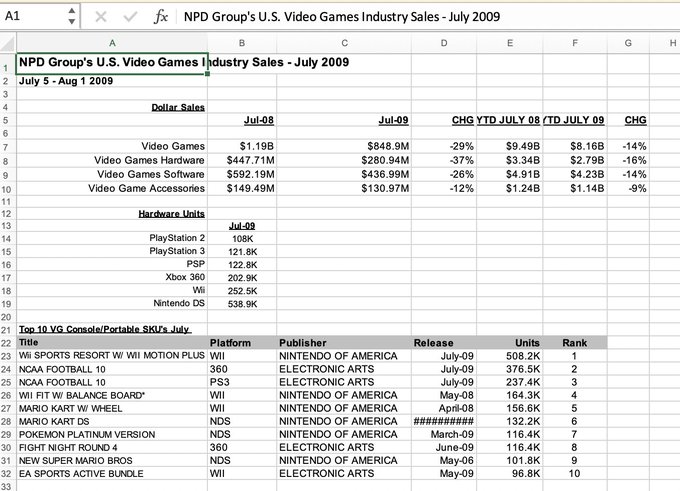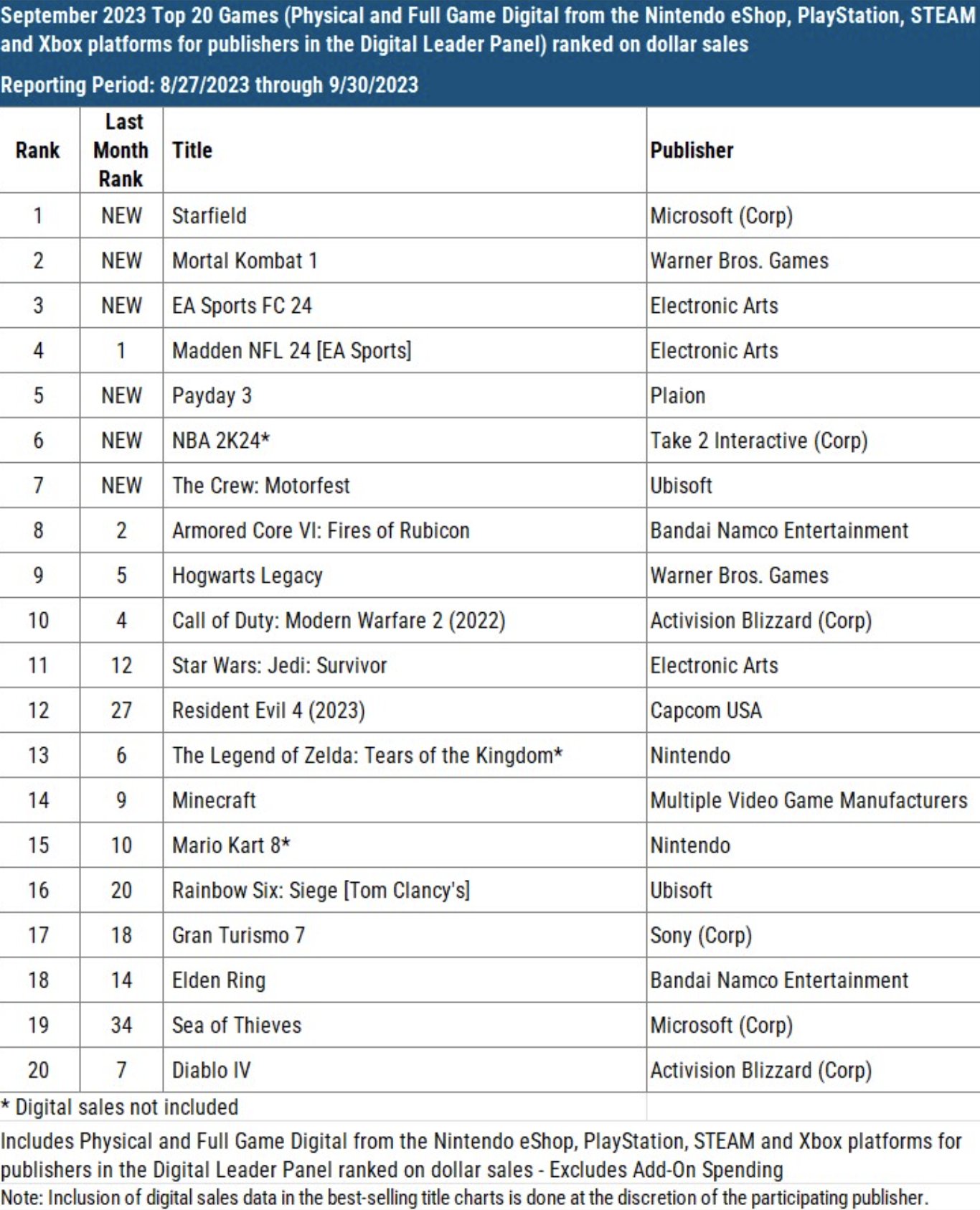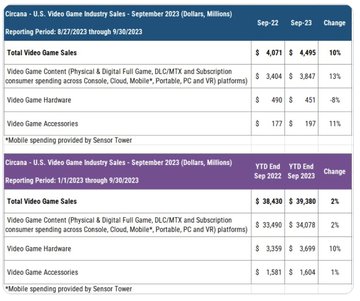- Thread starter
- #1
Pretty interesting article about opacity in video games industry especially in the United States:
July 2009 NPD


 www.installbaseforum.com
www.installbaseforum.com
September 2023 Circana



 www.installbaseforum.com
www.installbaseforum.com
Why do we swiftly know what Super Mario movies make, but not Super Mario games?My story about gaming's lack of a Hollywood box office chart...- What game companies wanted in the 2000s- The change in 2010 that reduced the info we get- And more!
July 2009 NPD

NPD (Circana) 2009 Full Year Results: Discussion Thread
Dates in Tracking: January 04, 2009 - January 02, 2010 [52 Weeks] Console Full Year Results Month Wii Xbox 360 PS3 PS2 January 679,000 309,000 203,000 101,000 February 753,000 391,000 276,000 131,000 March 601,000 330,000 218,000 112,000 April 340,000 175,000 127,000 172,000 May...
September 2023 Circana


Circana (NPD) September 2023: #1 Starfield #2 Mortal Kombat 1 #3 EA FC24; PS5 #1 Units + Revenue, XBS #2 Units + Revenue
State of the market September 2023 US Video Game Market Highlights from Circana - U.S. consumer spending on video game content, hardware and accessories grew 10% compared to a year ago, totaling $4.5B. Growth in spending on video game content and accessories offset an 8% decline in hardware...
The digital stores making it up to the publishers to share the data is the big obstacle. It makes it impossible to fully track the market as it would require hundreds/thousands of different contributors rather than a few select retailers
""Everybody would like to have the data from their competitors," former PlayStation U.S. boss Shawn Layden tells Axios. "Not everyone wants to offer up their own.""
Last edited:


